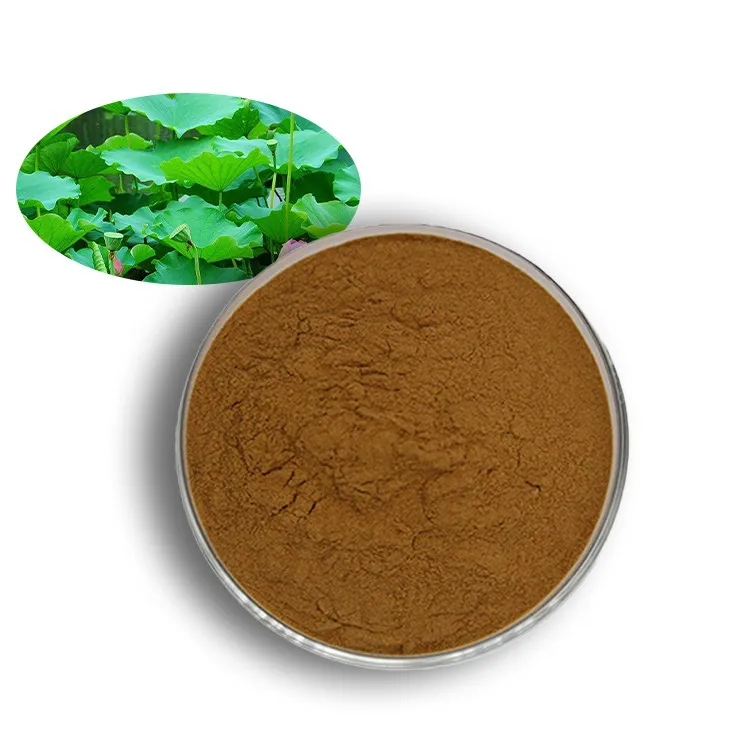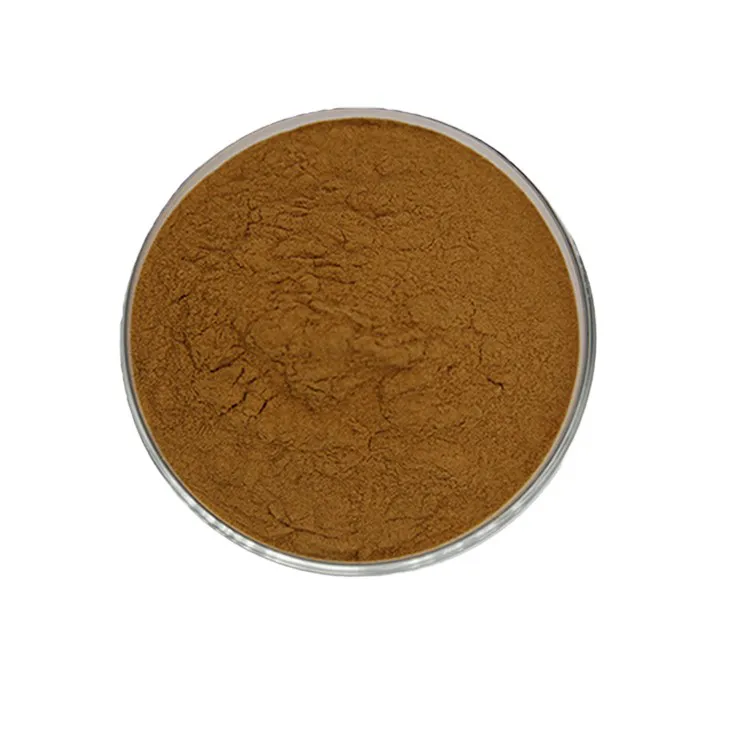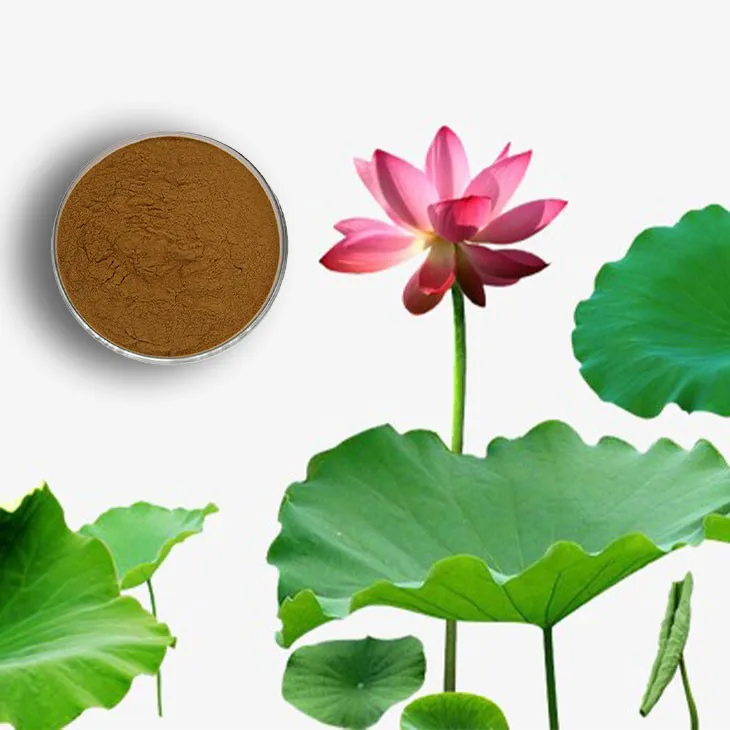- 0086-571-85302990
- sales@greenskybio.com
11 Reasons to Switch to Organic and Natural Lotus Leaf Extracts
2024-12-20

1. Purity and Potency
Organic and natural Lotus leaf extracts are pure in their composition. They are free from harmful chemicals, additives, and synthetic substances that are often found in non - organic counterparts. The extraction process of natural Lotus leaf extracts aims to preserve the potency of the active compounds present in the lotus leaf. These active compounds, such as alkaloids and flavonoids, are responsible for the numerous health benefits associated with Lotus leaf extracts. In contrast, synthetic alternatives may not be able to replicate the exact chemical composition and effectiveness of the natural extract. For example, the natural balance of components in the lotus leaf extract works synergistically to provide optimal results, while synthetic products may lack this harmonious combination.

2. Health Benefits
Weight Management
Lotus leaf extract has been traditionally used for weight management. It contains certain compounds that can help suppress appetite and increase metabolism. For instance, some studies suggest that the flavonoids in lotus leaf extract may interact with the body's hormonal system to reduce cravings for high - calorie foods. Additionally, it can enhance the body's ability to burn fat, which is beneficial for those looking to lose weight or maintain a healthy weight. This natural approach to weight management is a great alternative to some of the synthetic weight - loss products that may come with unwanted side effects.
Antioxidant Properties
The natural lotus leaf extract is rich in antioxidants. Antioxidants play a crucial role in protecting the body from free radicals, which are unstable molecules that can cause damage to cells and contribute to various diseases such as cancer, heart disease, and aging - related conditions. The antioxidants in lotus leaf extract, such as vitamin C and certain flavonoids, can neutralize these free radicals, reducing the risk of oxidative stress - related health problems. This makes it a valuable addition to a healthy diet and lifestyle.
Blood Sugar Regulation
There is evidence to suggest that lotus leaf extract may have a positive impact on blood sugar regulation. It may help improve insulin sensitivity, which is essential for maintaining normal blood sugar levels. For people with diabetes or those at risk of developing diabetes, incorporating organic lotus leaf extract into their diet could potentially be a natural way to assist in managing their blood sugar. This is in contrast to some synthetic drugs for blood sugar control, which may have more complex side - effect profiles.

3. Environmentally Friendly
- Organic lotus farming is more sustainable compared to conventional farming methods. Organic farmers use natural fertilizers like compost and manure, which are better for the soil structure and fertility. This helps to maintain the long - term health of the land, reducing soil erosion and degradation.
- Chemical pesticides and fertilizers are not used in organic lotus farming. This not only protects the lotus plants but also the surrounding ecosystem. For example, it helps to preserve the insect population, which is important for pollination and maintaining a balanced ecosystem. It also reduces the risk of chemical runoff into water bodies, which can have harmful effects on aquatic life.
- The production of natural lotus leaf extracts often involves less energy - intensive processes compared to the production of synthetic alternatives. Synthetic products may require complex chemical manufacturing processes that consume a large amount of energy and may release pollutants into the environment. By choosing organic and natural lotus leaf extracts, consumers are indirectly supporting more environmentally friendly production methods.

4. Skin Health
Anti - Inflammatory Effects
Lotus leaf extract has anti - inflammatory properties that can be beneficial for the skin. Inflammation on the skin can be caused by various factors such as environmental pollutants, allergens, or skin conditions like acne. The anti - inflammatory compounds in lotus leaf extract can help soothe irritated skin, reducing redness and swelling. This makes it a useful ingredient in skincare products, especially for those with sensitive or inflamed skin.
Anti - Aging Benefits
The antioxidants in lotus leaf extract also contribute to its anti - aging benefits for the skin. As mentioned earlier, antioxidants can protect the skin cells from free radical damage. This can help prevent the appearance of wrinkles, fine lines, and age spots. Regular use of products containing lotus leaf extract may help keep the skin looking youthful and healthy.

5. Digestive Health
Lotus leaf extract can have a positive impact on digestive health. It may help improve digestion by promoting the secretion of digestive enzymes. This can enhance the breakdown of food in the stomach and intestines, leading to better nutrient absorption. Additionally, it may have a mild laxative effect, which can help prevent constipation. A healthy digestive system is essential for overall well - being, and the natural properties of lotus leaf extract can contribute to maintaining a good digestive function.
6. No Harmful Residues
One of the major advantages of using organic and natural lotus leaf extracts is that there are no harmful chemical residues. Non - organic products may contain traces of pesticides, herbicides, or other synthetic chemicals that can be absorbed into the body. These residues can potentially have negative impacts on health over time. By choosing organic lotus leaf extract, consumers can be assured that they are consuming a product that is free from such harmful substances.
7. Ethical and Fair - Trade Considerations
- Many organic lotus farms follow ethical farming practices. This includes providing fair wages and working conditions for farmers and workers. Fair - trade initiatives in the organic lotus industry ensure that the producers receive a reasonable price for their products, which helps to support their livelihoods and the local economy.
- Organic farming also promotes biodiversity conservation, which is an ethical consideration in terms of protecting the planet's natural resources. By choosing organic lotus leaf extracts, consumers are supporting these ethical and sustainable practices.
8. Compatibility with Natural Diets
For those following a natural or plant - based diet, organic and natural lotus leaf extract fits well into their dietary regime. It is a plant - derived product that is free from artificial ingredients. It can be used in various ways, such as in herbal teas, dietary supplements, or as an ingredient in natural cooking recipes. This makes it a versatile and natural addition to a healthy, natural diet.
9. Traditional and Cultural Significance
Lotus has a long - standing traditional and cultural significance in many Asian countries. It is often associated with purity, beauty, and spiritual enlightenment. The use of lotus leaf extract in traditional medicine dates back centuries. By choosing organic and natural lotus leaf extract, consumers are not only reaping its health benefits but also connecting with this rich cultural heritage.
10. Long - Term Health and Wellness
Switching to organic and natural lotus leaf extract is a step towards long - term health and wellness. Its multiple health benefits, combined with its environmental friendliness and lack of harmful substances, make it a holistic choice. Incorporating it into one's daily routine can contribute to overall well - being, both in the short - term, through its immediate effects on various body functions, and in the long - term, by reducing the risk of chronic diseases associated with poor diet and environmental exposures.
11. Quality Assurance
Organic and natural lotus leaf extract products often come with quality assurance. Organic certification ensures that the product has been produced according to strict organic standards. This gives consumers confidence in the purity and authenticity of the product. In addition, many producers of natural lotus leaf extracts conduct quality control tests to ensure that the active compounds are present in the correct amounts and that the product is free from contaminants.
FAQ:
What are the health benefits of organic and natural lotus leaf extracts?
Organic and natural lotus leaf extracts offer several health benefits. They are rich in antioxidants which can help combat free radicals in the body, potentially reducing the risk of chronic diseases. Some studies suggest that they may also have anti - inflammatory properties, which can be beneficial for overall health. Additionally, lotus leaf extracts may aid in digestion and help with weight management as they can potentially increase metabolism.
How are organic and natural lotus leaf extracts more environmentally friendly?
Organic lotus leaf extraction is more environmentally friendly because it is typically produced without the use of harmful pesticides and synthetic fertilizers. This reduces chemical runoff into waterways and soil contamination. Also, the cultivation of organic lotus plants often promotes biodiversity as it doesn't disrupt the natural ecosystem as much as conventional farming methods. The production process also tends to have a lower carbon footprint compared to synthetic alternatives.
What makes organic and natural lotus leaf extracts superior to synthetic alternatives?
Organic and natural lotus leaf extracts are superior in several ways. Firstly, they are derived from natural sources, which means they are more likely to be well - tolerated by the body. Synthetic alternatives may contain chemicals that could cause adverse reactions. Secondly, natural extracts often contain a complex mixture of beneficial compounds that work synergistically, which is difficult to replicate in synthetic versions. Moreover, natural lotus leaf extracts are more sustainable and environmentally friendly as mentioned before.
Can organic and natural lotus leaf extracts be used in skincare?
Yes, they can be used in skincare. The antioxidants present in lotus leaf extracts can help protect the skin from damage caused by environmental factors such as UV rays and pollution. They may also have anti - aging properties, helping to reduce the appearance of wrinkles and fine lines. Additionally, the anti - inflammatory properties can soothe irritated skin.
How can one incorporate organic and natural lotus leaf extracts into their daily diet?
One can incorporate organic and natural lotus leaf extracts into their daily diet in various ways. It can be consumed as a tea, which is a common and easy method. Some health food products may also contain lotus leaf extract as an ingredient, such as certain dietary supplements or functional foods. It can also be used in cooking, for example, added to soups or stews in small amounts for flavor and potential health benefits.
Related literature
- The Health - Promoting Properties of Lotus Plants"
- "Organic Extracts: A Natural Approach to Wellness"
- "Benefits of Natural vs Synthetic Compounds in Herbal Extracts"
- ▶ Hesperidin
- ▶ citrus bioflavonoids
- ▶ plant extract
- ▶ lycopene
- ▶ Diosmin
- ▶ Grape seed extract
- ▶ Sea buckthorn Juice Powder
- ▶ Beetroot powder
- ▶ Hops Extract
- ▶ Artichoke Extract
- ▶ Reishi mushroom extract
- ▶ Astaxanthin
- ▶ Green Tea Extract
- ▶ Curcumin Extract
- ▶ Horse Chestnut Extract
- ▶ Other Problems
- ▶ Boswellia Serrata Extract
- ▶ Resveratrol Extract
- ▶ Marigold Extract
- ▶ Grape Leaf Extract
- ▶ blog3
- ▶ blog4
- ▶ blog5
-
Garcinia Cambogia Extract
2024-12-20
-
Bamboo Leaf extract
2024-12-20
-
Wheat Germ Extract
2024-12-20
-
Diosmin
2024-12-20
-
Troxerutin
2024-12-20
-
Konjac Powder
2024-12-20
-
Horse Chestnut Extract
2024-12-20
-
Maitake Mushroom Extract
2024-12-20
-
Curcuma Longa Extract/Turmeric extract
2024-12-20
-
Eucommia Ulmoides Extract
2024-12-20





















